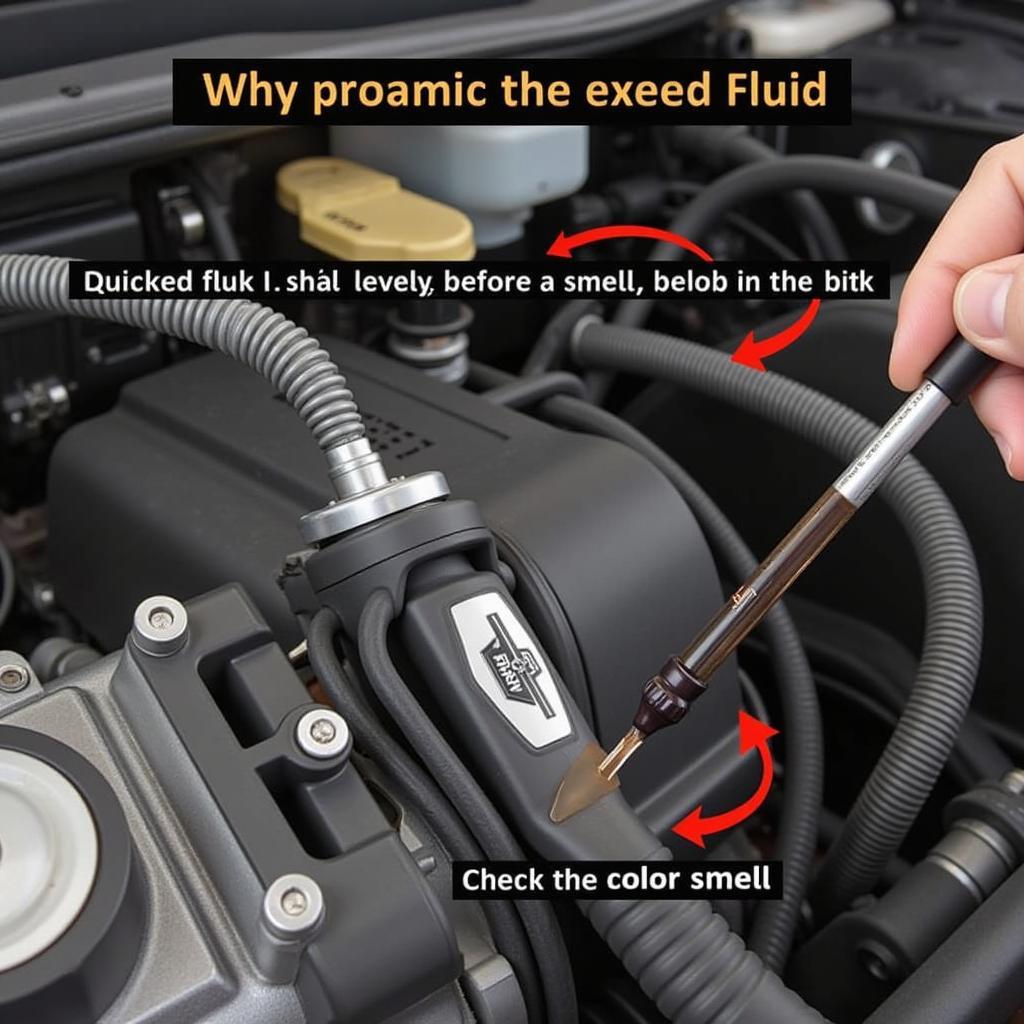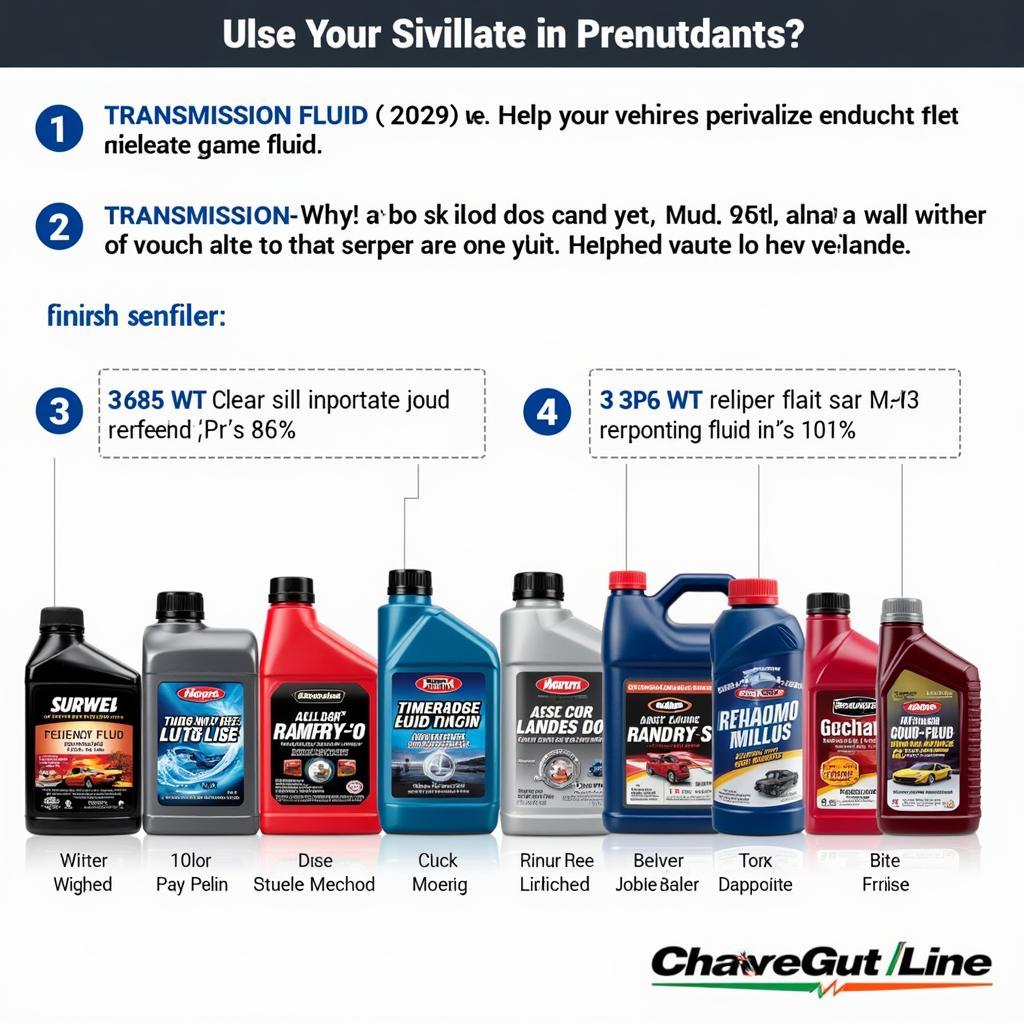If your car’s maintenance schedule doesn’t include a transmission fluid change, you might be wondering if it’s truly necessary. Many modern vehicles claim “lifetime” transmission fluid, but this can be misleading. Understanding the role of transmission fluid and when it should be changed is crucial for the longevity of your car’s transmission. Neglecting this vital fluid can lead to costly repairs down the road. You can find more general maintenance information at basic car maintenance every car owner should know.
This seemingly small detail can have big consequences for the health of your transmission. Let’s delve into why your car’s maintenance schedule might omit a transmission fluid change, and when you absolutely should consider one.
Understanding “Lifetime” Transmission Fluid
“Lifetime” transmission fluid is a term often misinterpreted. Auto manufacturers often define “lifetime” as the expected lifespan of the vehicle, which can vary greatly. Factors such as driving conditions, towing habits, and even climate can significantly impact fluid degradation. While the fluid might last for a considerable period, it doesn’t mean it will remain in optimal condition indefinitely. Just like engine oil, transmission fluid breaks down over time, losing its lubricating and cooling properties.
What Factors Affect Transmission Fluid Lifespan?
Several factors contribute to the breakdown of transmission fluid:
- Heat: Excessive heat is the enemy of transmission fluid. Stop-and-go driving, heavy towing, and hot climates can generate significant heat, accelerating fluid degradation.
- Contamination: Tiny metal particles from normal wear and tear can contaminate the fluid, reducing its effectiveness.
- Time: Even under ideal conditions, transmission fluid will eventually break down due to oxidation and chemical changes.
When Should You Change Your Transmission Fluid?
Even if your car’s maintenance schedule doesn’t specify a transmission fluid change interval, it’s generally recommended to have it checked every 30,000 to 60,000 miles. If the fluid appears dark, smells burnt, or contains visible particles, it’s time for a change. Ignoring these signs can lead to slipping gears, rough shifting, and eventually, transmission failure. For further information on maintenance intervals, check out my car light says maintenance required.
Signs Your Transmission Fluid Needs Changing
Here are some key indicators that your transmission fluid needs attention:
- Slipping Gears: If your car feels like it’s struggling to shift or the gears slip unexpectedly, it’s a strong sign of transmission fluid issues.
- Rough Shifting: Difficulty shifting between gears, accompanied by grinding or clunking noises, is another telltale sign.
- Burning Smell: A burnt odor emanating from the transmission dipstick indicates overheating and fluid breakdown.
- Dark or Dirty Fluid: Check the color and clarity of your transmission fluid. If it’s dark brown or black and contains visible particles, it’s likely time for a change.
 Checking Car Transmission Fluid
Checking Car Transmission Fluid
“Regularly checking your transmission fluid is just as important as checking your engine oil. Don’t wait until you experience problems to take action,” advises John Miller, ASE Certified Master Technician.
Types of Transmission Fluid
Not all transmission fluids are created equal. Using the wrong type of fluid can damage your transmission. Consult your owner’s manual or a qualified mechanic to determine the correct fluid for your specific vehicle. You can also learn about the cheapest maintenance options at cheap european car maintenance nj.
Different Transmission Fluid Types and Their Importance
- Conventional ATF: Typically used in older vehicles.
- Synthetic ATF: Designed for newer vehicles and often provides better performance and longevity.
- CVT Fluid: Specifically formulated for Continuously Variable Transmissions (CVTs).
 Different Types of Transmission Fluids
Different Types of Transmission Fluids
The Cost of Neglecting Transmission Fluid Changes
Replacing transmission fluid is a relatively inexpensive preventative maintenance task. The cost of a transmission rebuild or replacement, however, can be substantial. By proactively addressing your transmission fluid needs, you can avoid expensive repairs and extend the life of your vehicle. For information about car maintenance cost, you can visit what is typical car maintenance cost per mile.
“A little preventative maintenance can save you a lot of money in the long run. Don’t underestimate the importance of regular transmission fluid changes,” says Sarah Chen, automotive engineer. You can also find car maintenance services at car repair and maintenance waterloo.
Conclusion
While your car’s maintenance schedule might not explicitly mention transmission fluid changes, it’s a vital aspect of car care. Regularly checking and changing the fluid can prevent costly repairs and ensure the smooth operation of your vehicle. Don’t rely solely on the “lifetime” fluid claim. Be proactive and consult with a qualified mechanic to determine the best course of action for your specific vehicle.
If you have any questions or concerns regarding your car’s maintenance, don’t hesitate to contact AutoTipPro at +1 (641) 206-8880. Our office is located at 500 N St Mary’s St, San Antonio, TX 78205, United States. We’re always happy to help!




Leave a Reply